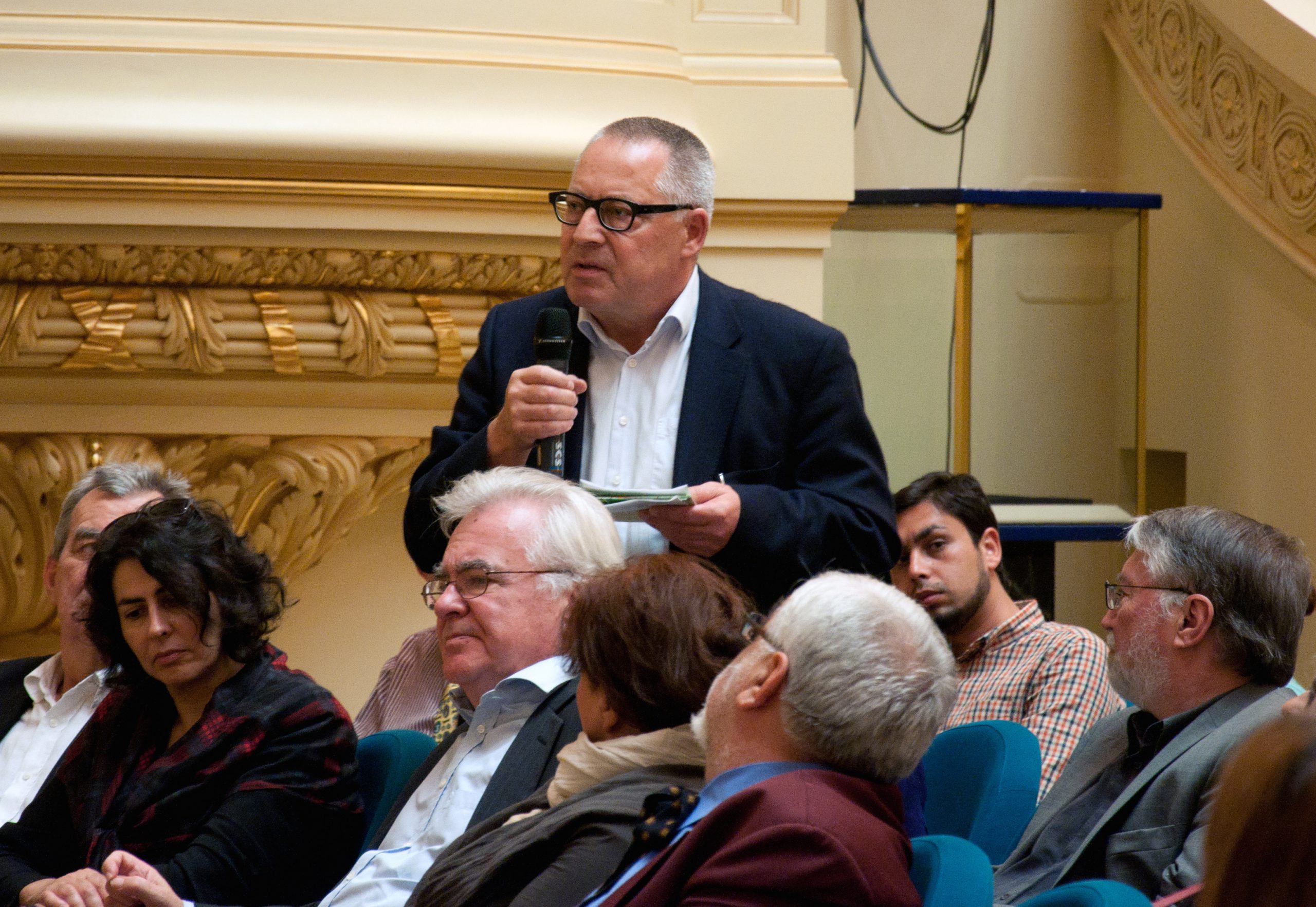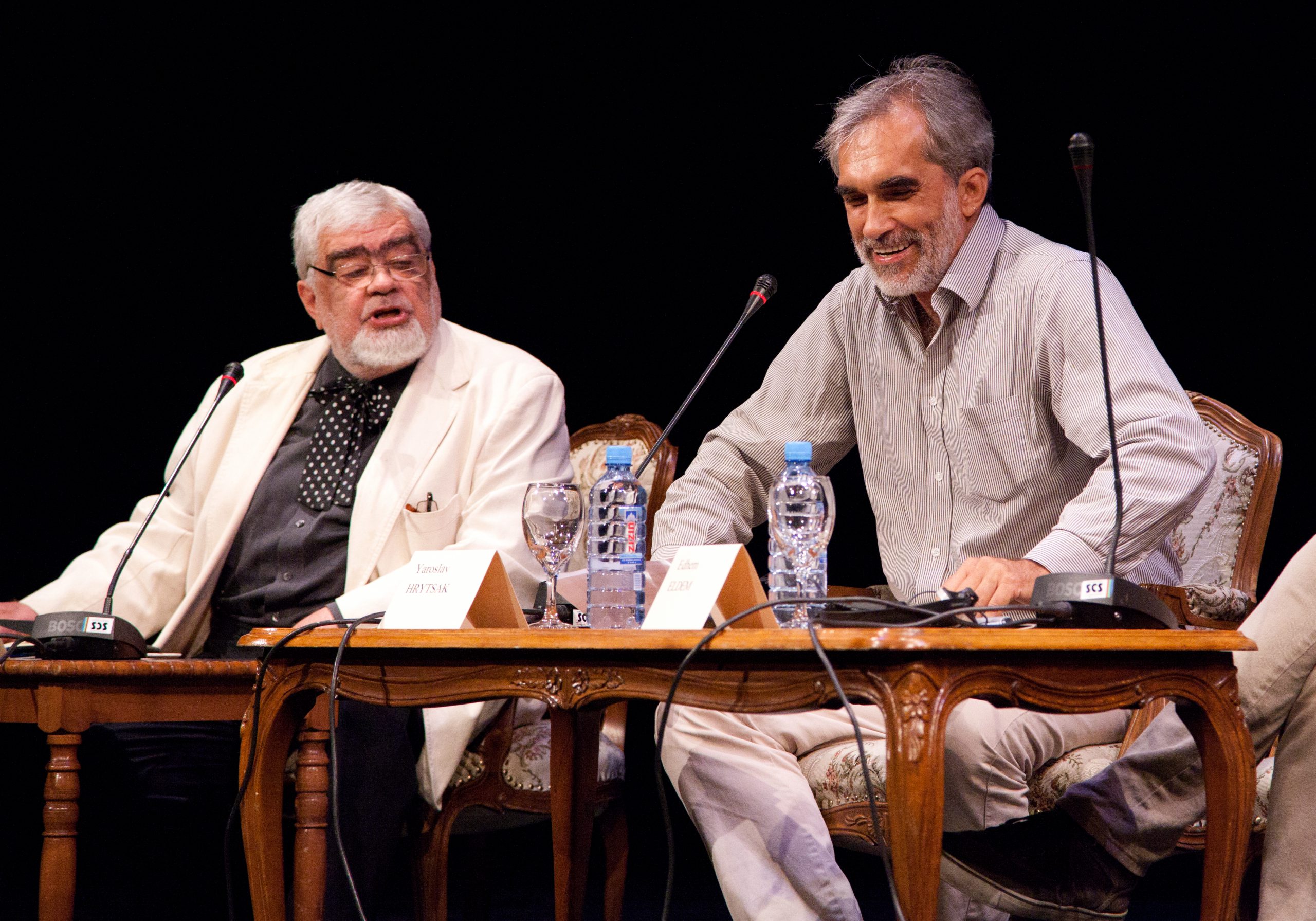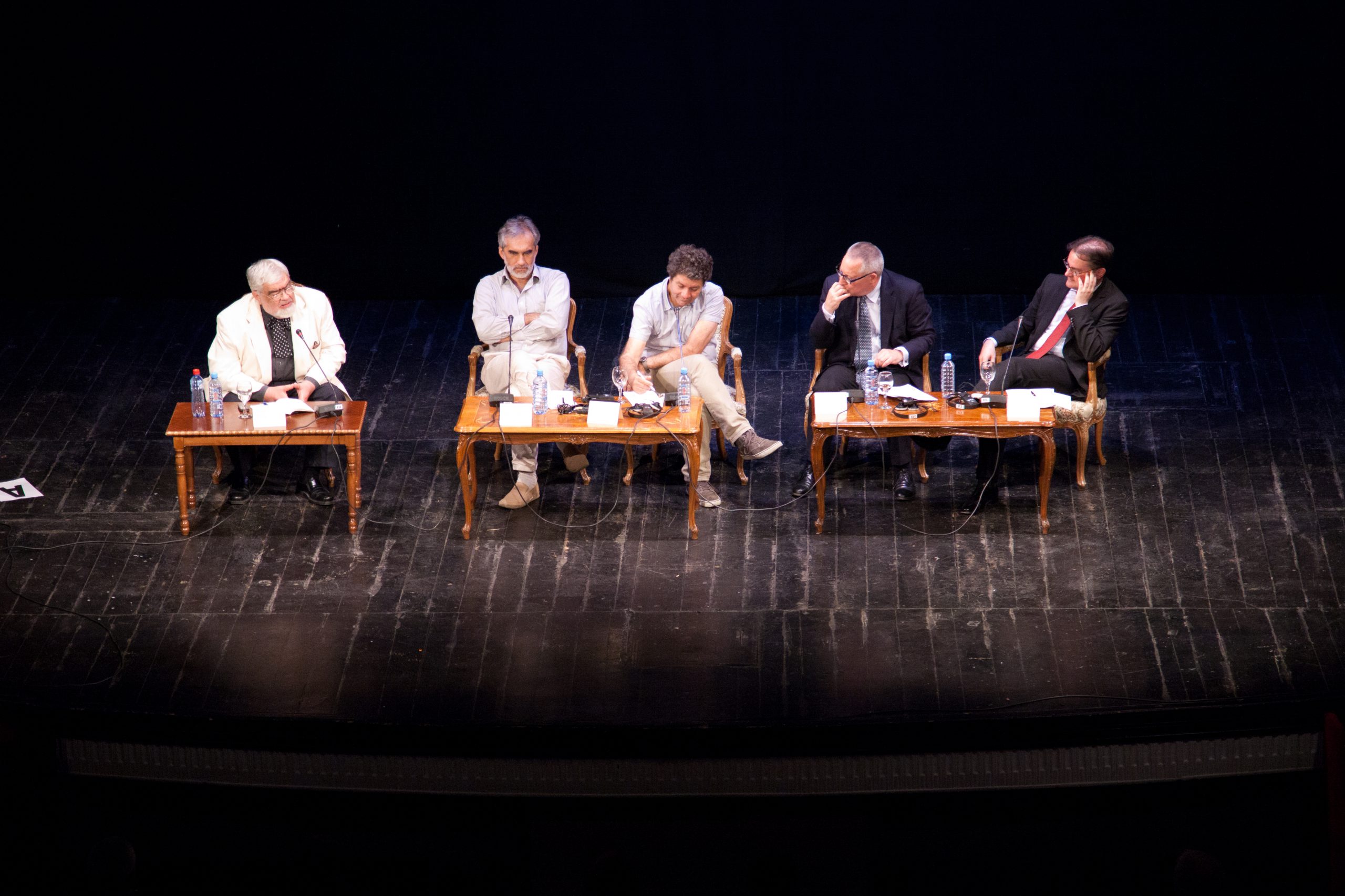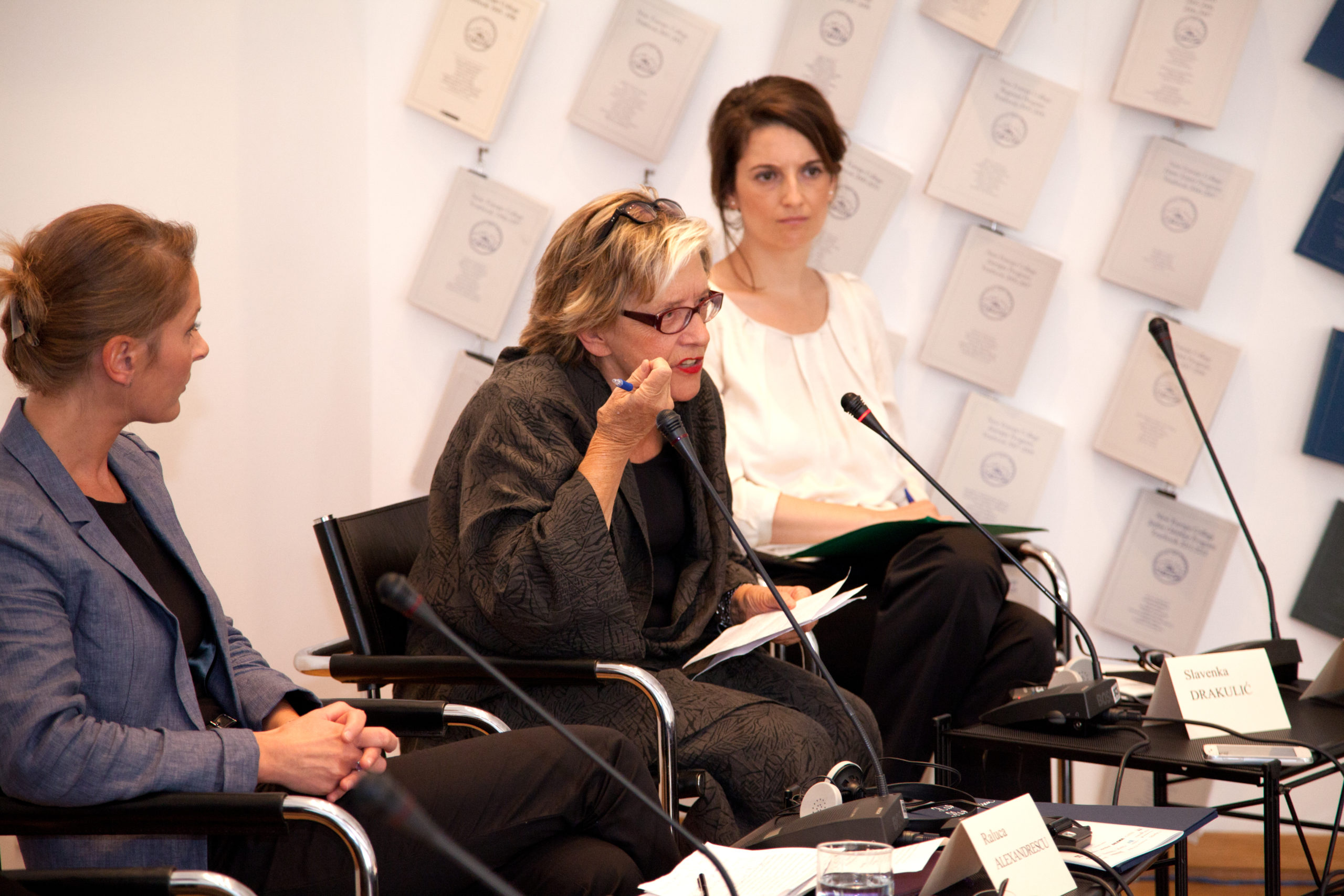Bucharest 2014
In the wake of the centennial of the outbreak of the First World War, the so-called Great War, a war that was to put an end to all wars, but only managed to dismantle empires, bring down societies, and maim a generation of people, we take our debate to Bucharest, Romania’s capital. There we ask what we have learned over the past hundred years and what we have not. Because they were not peaceful, not at all, neither in Europe nor the rest of the world, but instead littered with victims of combat and conflict – from the concentration camps of the national socialits, to the Killing Fields of Cambodia and the horrors of Srebrenica, all to today’s ongoing wars in Afghanistan, Syria and other regions of conflict.
Posing this question in Romania, which, after the end of the Great War deemed and turned itself into Greater Romania, territorially encompassing large swaths of land with high numbers of German- and Hungarian-speaking populations, but ideologically cutting these off from its Romanian-speaking inhabitants, we discuss what happens if Europe – and its idea of peaceful coexistence – fails. Joining the debate are sociologist Dan Dungaciu, political analyst Emil Hurezeanu, Russian writer Sonja Margolina, philosopher Andrei Cornea and many other intellectuals and academics from Romania and abroad.



